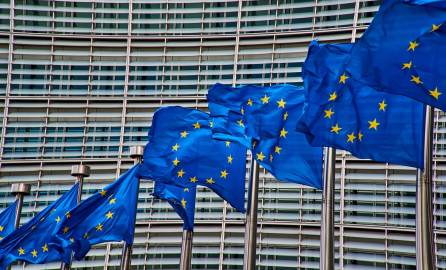Attaining sustainable development is not just about technical results but encompasses societal change and transformation which can only be achieved with proactive Partners, according to the European Union’s Development Commissioner Andris Piebalgs.
Speaking on the sidelines of the recent Fourth High Level Forum for Aid Effectiveness in Busan, South Korea, Commissioner Piebalgs explained that results are about more than checklists.
“Results are not just technical results, it’s also human rights and democracy,” said Commissioner Piebalgs. “It’s not only a technical process because sustainability is guaranteed by democratic reforms and the market reforms.”
At the event, which was attended by over 3,000 development representatives, the Commissioner presented the EU’s new proposals for making the aid it provides more effective: EU Joint Programming and the EU Transparency Guarantee.
Joint Programming would involve the EU donors working together on aid delivery and dividing their tasks in the most efficient way.
While the Transparency Guarantee would require EU Member States to publicly disclose all information on aid programmes so that they can be more easily accessed, shared and published.
The Commissioner also stressed the importance of country ownership, and is pleased that it is again a strong point in the Busan outcome declaration. "What we are trying to do,” said the Commissioner, “is to support their actions.”
This is consistent with the idea of each partner being held accountable.
“I believe it is a two way street,” added the Commissioner. “Definitely from our side we should be much more proactive in discussing these support programmes. But also developing countries should be more proactive in delivering on sustainable change to their citizens.”
“We are not just providing the money for any purpose,” he said. “We are providing money for the government, or government programmes, when they do necessary steps to increase delivery of support for the population – for health, for education, for other types of social services – and also for promoting country growth.”
The Commissioner also presented at Busan the idea of Country Compacts or flexible agreements between the EU and Partner countries to enable different development partners to better respond to countries’ priorities and specific needs as identified on the ground.
This comes after the EU presented in October the ‘Agenda for Change’ designed to increase the impact of EU development policy. As part of that agenda, the EU proposed to reduce the number of countries receiving development support and focus funds on the countries considered to be most in need: the poorest.
Commissioner Piebalgs reinforced this message in Busan, explaining that successful development cooperation means working towards no development cooperation by supporting countries to have sufficient capacity to meet their objectives and potential without development assistance.
“We are not forever – there is no clear date when we leave this business,” Commissioner Piebalgs said, “but we will be leaving one day.”

Log in with your EU Login account to post or comment on the platform.